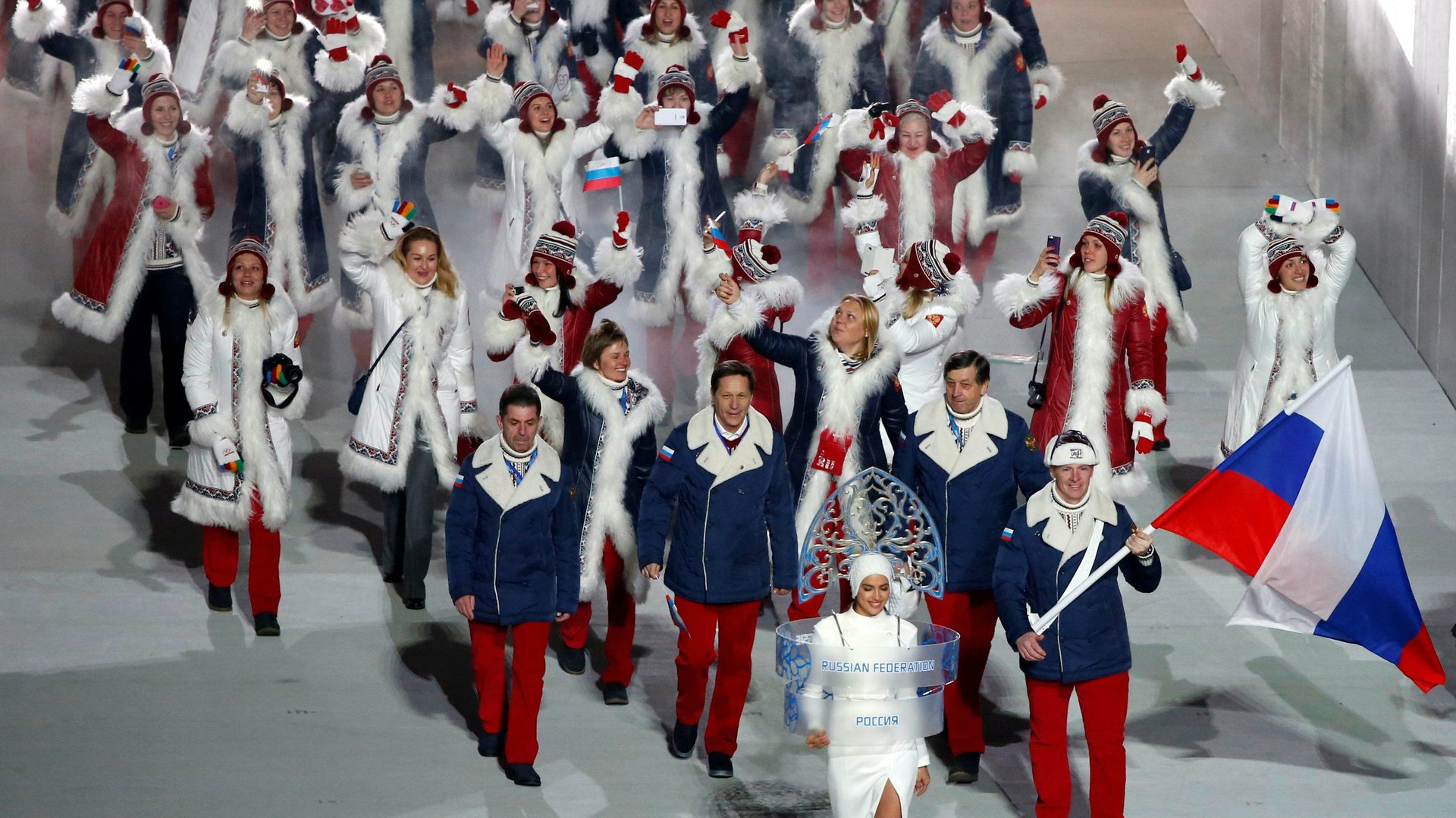The Olympics say “nyet!” to Russia for the 2018 Winter Games
With just under two months until the 2018 Winter Olympics in Pyeongchang, South Korea, the International Olympic Committee has suspended the Russian Olympic Committee “with immediate effect.”


With just under two months until the 2018 Winter Olympics in Pyeongchang, South Korea, the International Olympic Committee has suspended the Russian Olympic Committee “with immediate effect.”
The IOC made the announcement today (Dec. 5) after an independent investigation into a state-sponsored doping scandal resulted in more than a dozen athletes being stripped of medals from the 2014 Sochi games in Russia.
Russian officials are barred from attending the games, Russia’s anthem will not play, and its flag will not fly during the opening ceremony in South Korea. Russian athletes who are able to prove they are clean will be allowed to participate in the games under the neutral Olympic flag by competing as an “Olympic Athlete from Russia.”
“This was an unprecedented attack on the integrity of the Olympic Games and sport,” IOC President Thomas Bach said. “As an athlete myself, I feel very sorry for all the clean athletes from all NOCs who are suffering from this manipulation.”
Former Russian sports minister Vitaly Smirnov was critical of the decision, which he believes was not proactive. “Everyone is talking about how to punish Russia, but no one is talking about how to help Russia,” Smirnov told the New York Times (paywall).
The probe that started it all
The decisions comes a year after an investigation by the World Anti-Doping Agency (WADA) resulted in the bombshell two-part McLaren Report, which confirmed state-sponsored doping of Russian athletes and a conspiracy to subvert detection by passing dirty drug-test samples through a small hole in the wall of the lab and swapping them in for clean ones.
It’s been speculated that the scheme started in 2010, when Russia’s performance at the Vancouver games fell short of expectations and the government was worried about a potential embarrassment in 2014 at Sochi. In 2010 Russia took home 15 medals. In 2014 it won 33, the most of any country.
Russian officials have denied the findings of the McLaren report, saying the problem was not systemic, only the practice of a few bad apples. WADA laid out a 32-point plan for Russia to regain compliance, but its refusal to acknowledge the existence of the scheme or provide access to a Moscow lab pushed the IOC to make its decision about the 2018 games.
What the games will miss without Russia
Russian president Vladimir Putin has referred to the doping charges as a conspiracy to discredit his government and an example of “letting politics interfere with sport.” “In response to our supposed interference in their elections, they want to cause problems in the Russian presidential election,” Putin charged, according to reports in Russian media via the AP.
Russia is usually a powerhouse in the Winter Olympics, so its absence will significantly alter the medal count and could potentially even hinder the level of competition, particularly in the sport of ice hockey, which will already have an absence of high-level players due to the NHL’s refusal to let its players participate in 2018.
The IOC has ordered the Russian committee to reimburse $15 million for the costs it incurred in the investigation and subsequent testing “to build the capacity and integrity of the global anti-doping system.”